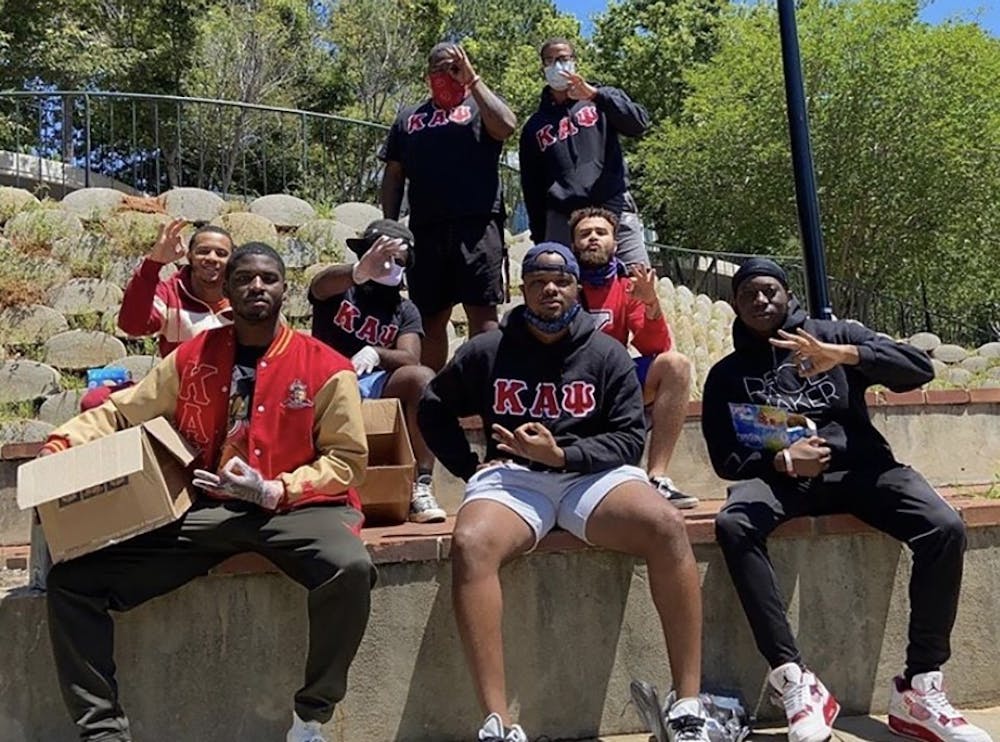The first Black Greek-letter organization at USC, Kappa Alpha Psi, has produced leaders, mentored students and more in its 50-year history.
The Zeta Epsilon Chapter of Kappa Alpha Psi celebrated its 50th anniversary on Sept. 25. It is known for producing the first Black student body president, Harry Walker, along with four other student body presidents and the first Black student body vice president.
Tyrece Walker, a third-year public relations and philosophy student, is the fraternity’s president.
“It's really an achievement to show you the history behind the fraternity," Walker said. "It gives you the opportunity to see that this is actually attainable.”
The fraternity currently has 23 brothers, and notable alumni include Columbia Mayor Stephen K. Benjamin; the first African American graduate of the USC School of Engineering, Raphael C. Lee; NBA All-Star Alex English; and former Daily Gamecock editor-in-chief Jeff Wilson.
Fourth-year broadcast journalism student Deric Rush said his proudest moment was being initiated into Kappa Alpha Psi.
“The lineage is strong, and I know that I have big shoes to fill, but with those big shoes to fill comes a lot of opportunity for excellence,” Rush said.
The group's "uplifting" of minority communities and its "mentorship of young Black men" drew Rush to join.
“I've had so many great male role models over the course of my life, and I just wanted to kind of be ... that person that pays it forward for all the people that were so helpful and instrumental in my upbringing,” Rush said.
The fraternity celebrated 50 years by gathering on a Zoom call with over 100 Zeta Epsilon alumni and current brothers. Fourth-year public relations student Javin Young said the call was "nostalgic."
“The thing for undergraduate brothers is, we were on the Zoom call, and there was a point we realized, ‘Oh, shoot, this isn’t even for us. This is for Zeta Epsilon. This is to honor the history,’" Young said. "It was just an amazing ceremony because you have such powerful voices in one place at one time. ”
Myron Terry, a USC class of 1986 graduate, was one of the 100 fraternity alumni on the Zoom call.
"Those relationships have been the most sustaining and most important relationships in my life," Terry said. "When I was initiated there were seven of us ... The seven of us are still as close today as we were 30-some years ago."
The first members of USC's Kappa Alpha Psi had to be initiated at Allen University because there wasn't an established chapter on USC’s campus yet. Luther Battiste, a colony president of the chapter while it was at Allen University and a Columbia attorney, said the university pushed back at the chapter's creation.
"We tried to negotiate with the university and the Interfraternity Council and got nowhere. They just wouldn't concede," Battiste said. "They basically were keeping us off-campus with the artificial rule that made no sense. So we brought down our national office."
It was only when Kappa Alpha Psi's national headquarters threatened to sue for discrimination that the group was allowed to be chartered on-campus in 1970, Battiste said.
When Kappa Alpha Psi was established at the University of South Carolina, there were six initiated students, but now there is a larger community of alumni and current students who continue its traditions.
"I love my brothers," Battiste said. "I love the chapter that we started at the university, and I'm very proud of the way that the people who came after us each year have worked to preserve the fraternity, to make it relevant and to develop the bond of friendship and brotherhood among hundreds of people who have pledged the chapter."

